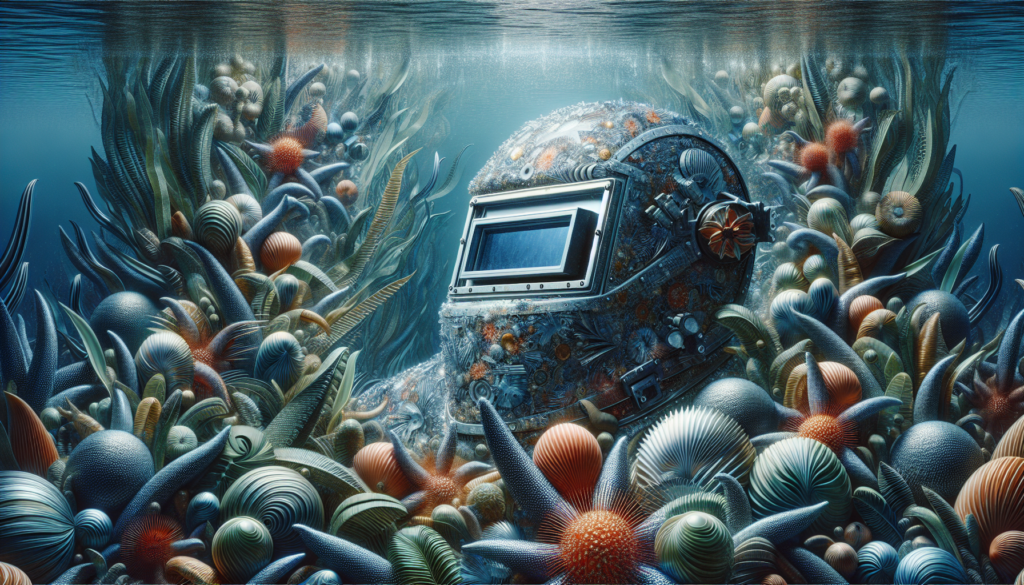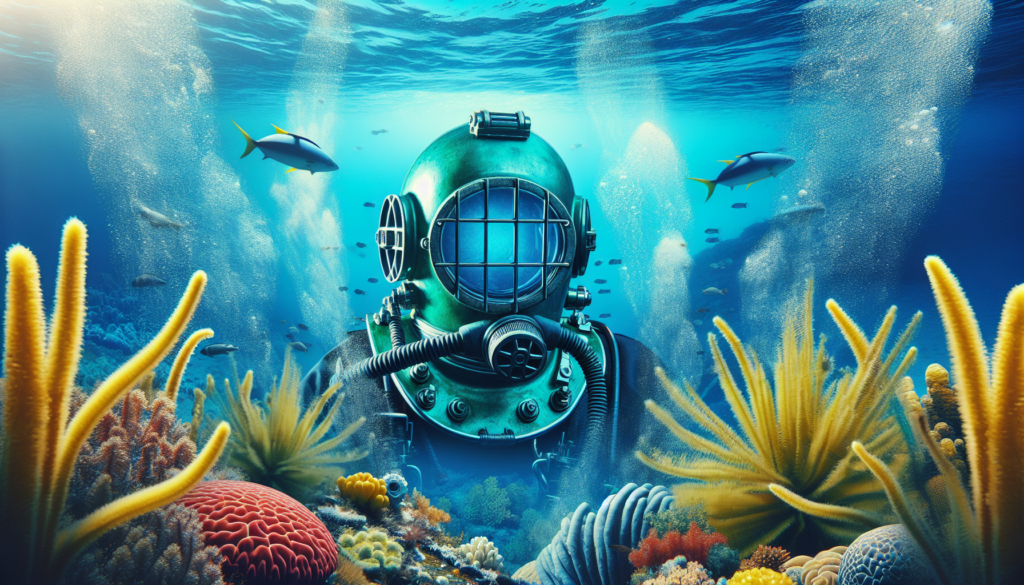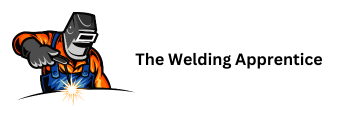Are you intrigued by the idea of taking your welding skills to a whole new level? If so, then you’re in for a treat! This article is all about exploring the fascinating world of underwater welding income. Delving into the depths of the underwater industry, we will uncover the secrets behind this specialized field and discover how it can be a lucrative and rewarding career choice for those willing to take the plunge. So, grab your diving gear and get ready to dive into the depths of underwater welding income!
Factors Affecting Underwater Welding Income
Experience Level
One of the primary factors that can affect your income as an underwater welder is your experience level. As with any profession, the more experience you have, the higher your earning potential. When you first start out as an underwater welder, you can expect to earn a lower income compared to more seasoned professionals. However, as you gain more on-the-job experience and develop your skills, you can command a higher salary.
Certification and Training
Another crucial factor that can impact your income as an underwater welder is your certification and training. It is essential to become certified through reputable training programs to demonstrate your competence and expertise in this specialized field. The more certifications you attain, such as the Certified Welding Inspector (CWI) or the Commercial Diving Certification (CDC), the more valuable you become to potential employers. This increased value can translate into higher wages.
Location of Work
The location where you work as an underwater welder also plays a significant role in determining your income. Different regions and countries have varying demands for underwater welding services, which can affect the wages offered. For instance, areas with a booming offshore oil industry might offer higher salaries due to the increased demand for underwater welders. On the other hand, remote or less populated locations may have fewer job opportunities and lower wages.
Type of Employer
The type of employer you work for can also influence your income as an underwater welder. Some underwater welders find employment with diving contractors or construction companies, while others work for government agencies or research institutes. The compensation packages offered by these various employers can differ significantly, so it is essential to research and consider the benefits and remuneration offered by each.
Diving Conditions
The diving conditions you encounter while carrying out underwater welding can impact your income. Some welding projects may require working in hazardous or challenging environments, such as deep-sea dives or with limited visibility. These conditions may come with increased risks and require specialized skills, resulting in higher pay rates. On the other hand, projects in more controlled and less demanding conditions may offer lower wages.
Average Income Range
Entry-level Underwater Welders
As an entry-level underwater welder, you can expect to earn a starting salary ranging from $30,000 to $50,000 per year. These positions typically require limited experience and focus on providing you with an opportunity to gain knowledge and skills in the field. Entry-level welders often work under the supervision of more experienced professionals, allowing them to learn and develop their abilities while earning a modest income.
Experienced Underwater Welders
Once you have acquired several years of experience, your income as an underwater welder can significantly increase. Experienced welders can earn an average salary ranging from $50,000 to $100,000 per year. This increase is due to the additional expertise and proficiency you bring to the job. Employers value experienced underwater welders for their ability to handle more complex projects and work independently.
Divers with Supervisory Roles
If you progress to a supervisory role within the field of underwater welding, your income potential can soar even higher. As a supervisor or diving instructor, you can earn an average salary of $100,000 or more annually. These positions require a combination of extensive experience, leadership skills, and advanced certifications. By overseeing and coordinating underwater welding projects, you can enjoy higher compensation and increased responsibility.

Additional Income Opportunities
Diving Inspection and Maintenance
Underwater welders can expand their income opportunities by diversifying their skill set. By branching into diving inspection and maintenance, you can take on additional projects and earn extra income. Diving inspection involves examining submerged structures, such as oil rigs or bridges, for damage or potential issues. Maintenance work, on the other hand, focuses on repairing and maintaining these structures. These complementary roles can supplement your welding income and provide additional job security.
Underwater Construction
Another area where underwater welders can explore additional income is underwater construction. This field involves using welding and construction skills to build structures underwater, such as pipelines or underwater habitats. Underwater welders with experience in construction can earn higher incomes due to the specialized nature of this work. The demand for underwater construction is often linked to infrastructure development and offshore projects, offering promising income opportunities.
Underwater Salvage and Repair
Underwater salvage and repair operations present another avenue for underwater welders to increase their income. Salvage projects involve retrieving or repairing sunken vessels, while repair work focuses on fixing damaged underwater components, such as pipelines or ship hulls. Both activities require skilled underwater welders to execute the necessary repairs. The income potential for salvage and repair work can be lucrative, as these projects often involve working in challenging conditions and require expertise in welding techniques.
Offshore Oil and Gas Industry
The offshore oil and gas industry offers significant income prospects for underwater welders. As oil and gas exploration continues in deep-sea environments, the need for underwater welders to maintain and repair offshore platforms and pipelines increases. The demanding nature of this work and the specialized skills required can result in higher wages. However, it is important to note that offshore work may involve extended periods away from home and potential exposure to hazardous conditions.
Scientific and Research Diving
Underwater welders also have the opportunity to enter the field of scientific and research diving. This sector focuses on underwater research and exploration, where welders may be involved in tasks such as marine biology studies or archaeological excavations. Although the income in scientific and research diving may not be as high as other sectors, these roles often provide a unique and fulfilling experience. Additionally, they offer opportunities to contribute to advancements in knowledge and conservation efforts.
Factors to Consider Before Pursuing Underwater Welding
Health and Safety Risks
Before embarking on a career in underwater welding, it is crucial to consider the health and safety risks associated with the profession. Working in underwater environments can be physically demanding and potentially hazardous. Factors such as water pressure, temperature variations, and diving-related injuries pose a risk to your well-being. It is essential to prioritize safety protocols, maintain proper training, and undergo regular medical examinations to mitigate these risks.
Job Availability and Stability
Another important factor to consider is the availability and stability of underwater welding jobs. The demand for underwater welders can fluctuate based on several factors, including economic conditions, industry trends, and geographical location. It is essential to research the job market and assess the potential for long-term employment before committing to a career in underwater welding. Maintaining a diverse skill set and staying updated with industry advancements can increase your chances of securing consistent work opportunities.
Work-Life Balance
The nature of the underwater welding profession can impact your work-life balance. The job often involves irregular working hours, extended periods away from home, and potential travel to remote locations. It is important to consider how these factors may affect your personal life and relationships. Finding a balance between work commitments and personal well-being is crucial for long-term satisfaction and overall happiness in your chosen career.
Long-Term Career Prospects
It is essential to evaluate the long-term career prospects before pursuing underwater welding. Consider the potential for career growth and advancement within the field. Acquiring additional certifications and expanding your skill set can increase your value in the job market. Exploring various specialties within underwater welding, such as inspection or underwater construction, can provide opportunities for career development. Understanding the possibilities for professional growth can help you make informed decisions about your future in this demanding profession.
In conclusion, several factors influence the income of underwater welders. Experience level, certification and training, location of work, type of employer, and diving conditions all play a significant role in determining wages. The average income range varies depending on the level of experience, with entry-level welders earning around $30,000 to $50,000 per year and experienced welders bringing in $50,000 to $100,000 annually. There are also additional income opportunities in diving inspection and maintenance, underwater construction, salvage and repair, offshore oil and gas, and scientific and research diving. However, aspiring underwater welders should carefully consider the associated health and safety risks, job availability, work-life balance, and long-term career prospects before pursuing this challenging yet rewarding profession.

